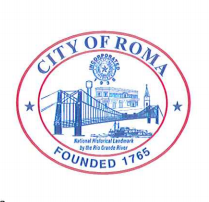ROMA — Citizens here could soon be voting on amendments to the city charter after the charter review commission approved, in a split vote, to recommend changes that include controversial ones that would make it easier to appoint or terminate a city manager.
The commission agreed to make those recommendations during a meeting Wednesday evening during which community members spoke out against those specific changes during the public hearing portion of the meeting.
Among them were Roma Mayor Roberto A. Salinas and Councilman Clyde Guerra.
Salinas alleged that the changes regarding the appointment of a city manager was a ploy to remove current City Manager Crisanto Salinas.
The charter currently requires a super-majority vote by the city council to hire or fire the city manager but the proposed changes would allow require a simple majority of the council, at least three out of five votes, for such actions.
“My concern with this is that it opens up the probability that the position of city manager is now more susceptible to becoming nothing more than a political appointment,” Salinas said. “If the city manager becomes a political pawn of the city council, the city council will have control of all personnel matters, access to public funds and control over the day-to-day operations of the city.”
After the meeting, Commission Chairman Abel Villarreal said the requirement of a super-majority impeded the city council from implementing the will of the citizens who voted them into office.
“When you don’t have to answer to the majority, you just have to keep two people happy,” Villarreal said.
He pointed out that going forward, there was no general city election that had super-majority of the city council members on the ballot — either three or two positions will be up for election in Roma’s elections.
“My view is — why, when election time comes around, why does the city as an entity want our votes if our votes don’t matter?” Villarreal said. “Because at the end of the day, a majority of the people that we elect do not control what happens as far as the direction of the city.”
Villarreal believed some concerns about how easily the council could control or terminate the city manager were overblown, noting that the city charter prohibits micromanaging and that there are still procedures that the council must follow before terminating him, apart from contractual obligations.
The members of the commission had concerns of their own which they raised during a discussion portion, just prior to taking a vote.
Commissioner Oscar Ramirez Jr. noted that the Texas Constitution prohibits any city’s charter to be altered, amended, or repealed more often than every two years and said he believed that amending the city’s charter again after three years, went against the intention of the law.
“Why right now?” Ramirez, who voted against adopting the recommendation, said after the meeting. “We never got a straight answer — why change the charter at this time?”
Ramirez added that he believed it would open up the city that didn’t need to be made.
“Changes that would be more politically motivated than what is actually good for the city,” he said.
“Stability is very important,” said Commissioner Eliot Muñoz, who also voted against the changes. “And we believe that if we go this other route, we believe there will be more instability.”
Following the commission’s vote, the recommendations will go before the city council.
Other recommendations approved by the commission include amending the charter to allow a former mayor or council member to hold a “compensated appointive office” or be employed by the city after one year of the expiration of the term for which they were elected or appointed.
Another recommended amendment would provide that special city council meetings shall be held at the call of the mayor or two of the council members.
If approved by the council, those amendments will be put before voters in an election.
Mayor Salinas, as well as Ramirez and Muñoz, said they would strive to educate the public on the proposed amendments if they were put to a vote.
“My goal is only to inform the public and that’s all,” Salinas said.




